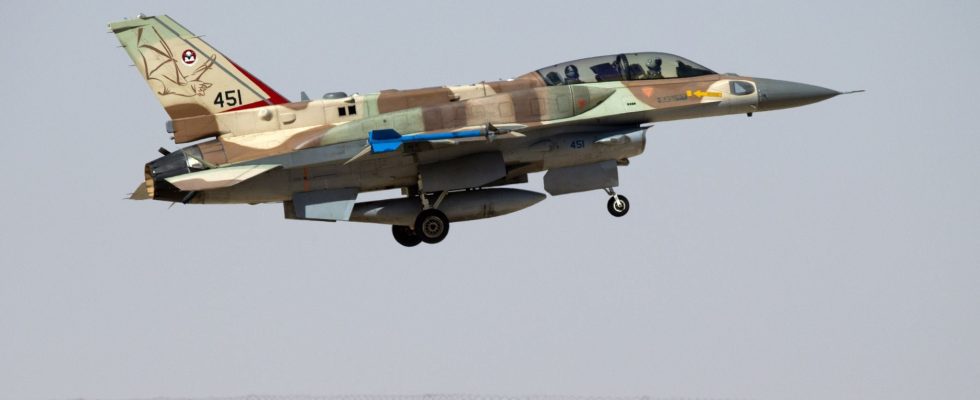After Iran’s attack on Israel, should we expect retaliatory strikes against Tehran’s nuclear facilities? “We are still concerned about this possibility,” said Monday, April 15, the director of the International Atomic Energy Agency (IAEA), Rafael Grossi, who also indicated that Iran had taken care to close its nuclear facilities. Sunday, the day of its massive air attack against Hebrew territory.
“Our inspectors in Iran have been informed by the government that [dimanche], all the nuclear installations that we inspect every day would remain closed for security reasons,” explained Rafael Grossi. According to him, the Iranian installations were to reopen on Monday. “I decided not to let the inspectors return until the situation is not completely calm,” he added, explaining that IAEA activities would only resume this Tuesday. This closure “has not had an impact on our inspection activities. But of course, we always call for the greatest restraint,” he continued.
1981, 2007, 2010, 2011
And for good reason, this would not be Israel’s first attack against the nuclear installations of its enemies in the region. In 1981, the Osirak nuclear reactor, in Saddam Hussein’s Iraq, was bombed despite opposition from Washington. Five years earlier, Iraq had in fact purchased this Osiris-class nuclear reactor from France, but Israel accused Baghdad of wanting to use these facilities to develop a clandestine program of weapons of mass destruction, the IDF launched “Operation Opera “, June 7, 1981. The intervention, consisting of an air attack, destroyed the site and left eleven dead, including a French engineer.
Israel also admitted, in 2018, to having launched a top secret air raid eleven years earlier against a nuclear reactor in eastern Syria, on the grounds, again, of preventing the development of nuclear weapons. On September 5, 2007, Israeli F-16 and F-15 planes struck a reactor located in the Deir al-Zour area, causing irreversible damage, according to the Israeli army. The Syrian army did not respond at the time, with President Bashar al-Assad only stating that Israel had “bombed buildings and constructions that were not being used”, recalls the BBC. The IAEA, for its part, concluded in 2011 that it was “very likely” that the site was a nuclear reactor.
A quiet war
The Israeli secret services are also accused by Tehran of having assassinated several Iranian nuclear physicists in 2010: Massoud Ali Mohammadi is said to have died in the explosion of a motorcycle bomb, in front of his home in the Iranian capital, on January 12. Majid Shahriari, founder of the Nuclear Society of Iran, was killed on November 29 of the same year, in the explosion of a bomb placed in his car, according to an article in Point. The same day, Fereydou Abbasi Davani, another nuclear physicist, was killed in similar conditions.
Also in 2010, a very sophisticated cyberattack via the Stuxnet virus, also attributed by Tehran to Israel and the United States, hit the Iranian nuclear program, leading to a series of breakdowns in its fleet of centrifuges used for the enrichment of uranium. This time in July 2011, Darioush Rezainejad, working for the Ministry of Defense, was also shot and killed by individuals on motorcycles. A Mossad source later revealed to the German weekly Spiegel that the attack was sponsored by Israel.
The growing tensions between Israel and Iran in recent days threaten to reawaken this war which has been waged quietly for several years. Monday evening, the IDF Chief of Staff, General Herzi Halevi, affirmed that Israel would “respond to the launch of so many cruise missiles and drones on the territory of the State of Israel” by Tehran , the day before. Iranian President Ebrahim Raïssi also warned on Tuesday that “the slightest action” by Israel against “Iran’s interests” would provoke “a severe, widespread and painful response” from his country.
